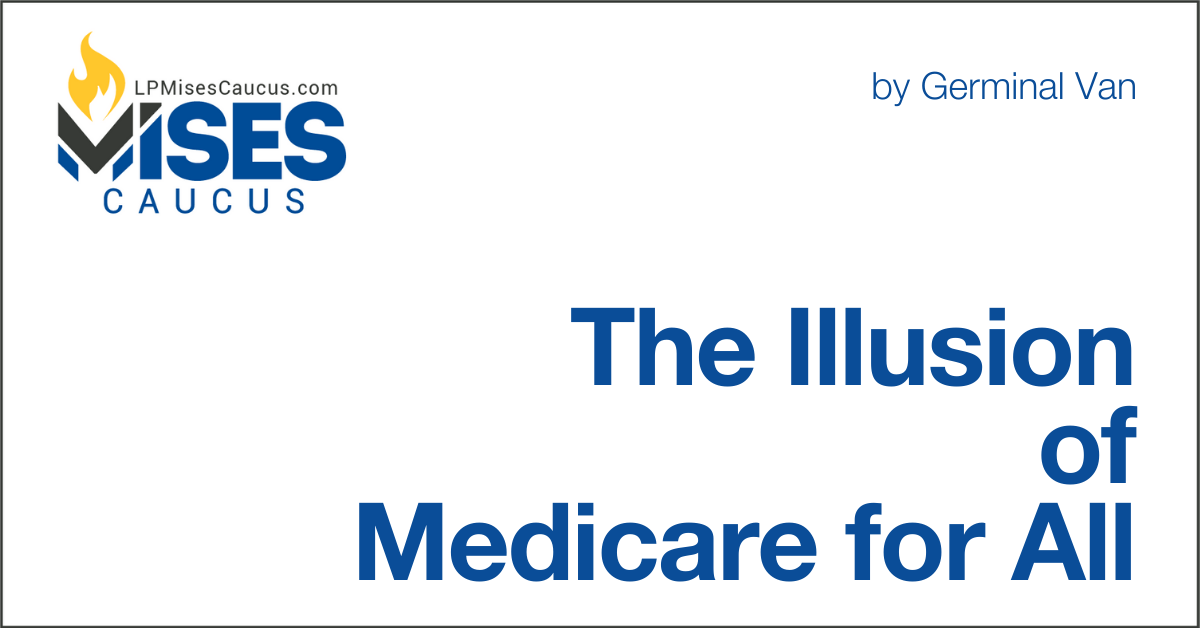The idea of having a universal healthcare system does seem like a moral imperative. Indeed, before the effectuation of the Affordable Care Act known as Obamacare, millions of Americans were without health insurance. The moral case for promulgating universal healthcare is that it’s inconceivable to see people dying in the street because they cannot afford healthcare. The very purpose of universal healthcare is to alleviate the cost of medicine by emphasizing its access.
Medicare-For-All, which is properly known as the single-payer system, is the healthcare program that the democratic socialist presidential candidate has relentlessly avowed in his platform. The single-payer system in fact guarantees that all medical care and costs are subsidized by only one payer, which is the government of the United States. If it were to be implemented, the single-payer system would cost $32 trillion for the first ten years of its effectuation according to the Mercatus Center at George Mason University.[1] These $32 trillion will be only generated through heavy taxation to fund the program.[2] Moreover, as we know that the federal government is the primary payer within a single-payer system, it suggests that the government will have the ultimate control over the national healthcare, which means that the government will control the prices and the means of production in the healthcare industry, and it will accordingly determine its supply.[3]
What is the issue with healthcare being subsidized by a central authority? When a central authority subsidizes a program, it means that it also controls the program that it sponsors. The single-payer system will determine who has access to healthcare and under what conditions a patient ought to be seen by a government-paid doctor or government-paid nurse. As the sole subsidizer of the program, the government gets to decide on the inventory of the equipment needed to supply medical care. Moreover, the government gets to determine to what extent of medical care shall be provided to patients.[4] When a medical program focuses on access rather than quality; it increases the demands on the one hand because everyone would request that service. There will be more patients everyday requesting various medical care at the same time because they have free access to healthcare and the cost of the service would be relatively low. On the other hand, that augmentation in demands will stimulate a shortage of supply within the service being delivered. As more patients will request medical attention at the same time for various reasons, hospitals will have a hard time supplying different services requested by every patient at the same time. It stipulates that some patients with chronic conditions may not even be prioritized. They may not be seen by a doctor at their convenience because the increase in demands will generate long waiting lines, and a shortage in staff.[5] That assessment has been proven with the example of the National Health Services (NHS). The National Health Services, which is the nationalized healthcare agency of Great Britain, has already encountered tremendous hardships with the single-payer system.[6] The excess of demand in medical care and the shortage of supply in medical provision and services; forced the British government to hire doctors from India and Pakistan to compensate the shortage of staff that occurred.[7]
Another point that is worth mentioning regarding the problem of the single-payer system is that when healthcare is centralized by the state, it substantially limits incentives for patients and medical staff.[8] Why is that? Healthcare controlled by a central authority attenuates competition and deteriorates the quality of services.[9] If healthcare in the United States was controlled by the federal government, competition among hospitals and medical research centers will be surely eradicated because the government will drive these hospitals out of business by monopolizing the healthcare system. If the healthcare system is not controlled by private ownership, and the prices are not determined by the market; the quality of medical services will inevitably and evidently worsen. It will disincentivize doctors to do a better job, it will drive hospitals out of business, and it will create a climate of mistrust between patients and government insurers. Healthcare can always be improved if it is controlled by private insurers who have the power to innovate medicine, and to make arrangements between themselves and patients on premiums. Arrangements cannot be made between patients and government on the cost of medicine. If the single-payer system was implemented here in the United States, it will be a humongous disaster for our national healthcare system.
References
[1] Reese, Chad, “Medicare for All Would Cost Federal Government $32 Trillion,” The Bridge, Mercatus Center, George Mason University. (2018). https://www.mercatus.org/bridge/commentary/medicare-all-plan-would-cost-federal-government-32-trillion. Article. Web.
[2] Blahous, Charles, “The Cost of a National Single-Payer Healthcare System,” Mercatus Center George Mason University. (2018). https://www.mercatus.org/system/files/blahous-costs-medicare-mercatus-working-paper-v1_1.pdf. Article. Web.
[3] Matthews, Merrill, “What Medicare-For-All Supporters Won’t Tell You,” Institute for Policy Innovation. (2019). https://www.ipi.org/ipi_issues/detail/what-medicare-for-all-supporters-wont-tell-you. Article. Web.
[4] Greenberg, Jon, “What Is Medicare For All?” Medicare For All: What It Is , What It Isn’t?” Politifact. (2019). https://www.politifact.com/truth-o-meter/article/2019/feb/19/explaining-medicare-all/. Article. Web.
[5] Conover, Chris, “The # Reason Bernie Sanders’ Medicare-for-All Single-Payer Plan Is A Singularly Bad Idea.” Forbes, (2017). https://www.forbes.com/sites/theapothecary/2017/09/30/the-3-reason-bernie-sanders-medicare-for-all-single-payer-plan-is-a-singularly-bad-idea/#205579ad3a70. Article. Web.
[6] Barsouk, Adam, “Sanders’ ‘Medicare-For-All’ Won’t Work. Here’s Why.” (2018). https://dailycaller.com/2018/08/07/medicare-for-all-wont-work/. Article. Web.
[7] Pipes, Sally, “Why Does the Left Want Universal Health Care? Britain’s Is On Its Deathbed.” Fortune. (2018). http://fortune.com/2018/07/10/nhs-70-years-uk-britain-single-payer/. Article. Web.
[8] Dr. Marion Mass, “Medicare for All Will Never Work, So Let’s Stop Pushing It.” The Hill, (2018). https://thehill.com/opinion/healthcare/413372-medicare-for-all-will-never-work-so-lets-stop-pushing-it. Article. Web.
[9] Ibid.

